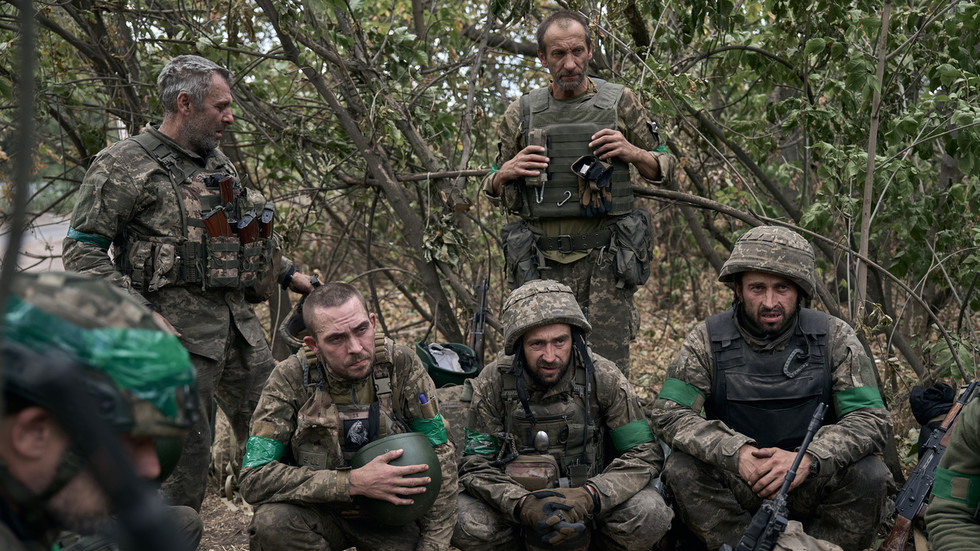Europe Prepares for the Influx of Ukrainian Veterans Battling PTSD
As the conflict in Ukraine rages on, Europe stands on the brink of a significant humanitarian challenge: the influx of Ukrainian veterans returning from the front lines, many of whom bear the invisible wounds of psychological trauma. Post-Traumatic Stress Disorder (PTSD) is a growing concern among these soldiers, and experts are sounding the alarm about the urgent need for mental health resources to support them. The psychological scars left by war are profound and long-lasting, and addressing them is critical not just for the veterans, but for the societies they reintegrate into.
The Psychological Impact of War
War takes a toll that goes beyond physical injuries. For many soldiers, particularly those who have experienced intense combat situations, the mental health implications can be severe. PTSD is characterized by a range of symptoms, including flashbacks, severe anxiety, and uncontrollable thoughts about the traumatic event. The emotional and psychological impact can disrupt daily life, affect relationships, and lead to secondary issues such as substance abuse.
According to a report by the World Health Organization, nearly one in five veterans returning from combat zones experiences PTSD. In the case of Ukrainian soldiers, the prolonged nature of the conflict and the brutal realities of warfare increase the likelihood of these mental health challenges. As these veterans return to their homes, the need for effective mental health interventions becomes increasingly critical.
Europe’s Response: A Call to Action
As European nations prepare for the arrival of Ukrainian veterans, there is a growing recognition of the need for comprehensive mental health services. Several countries are already taking proactive steps to ensure that resources are in place for these returning soldiers.
- Increased Funding: Governments are allocating additional funds to mental health services specifically aimed at veterans. This includes hiring more mental health professionals and creating programs tailored to the unique experiences of veterans.
- Community Support Programs: Many organizations are gearing up to offer community-based support programs that can help veterans reintegrate into society. These programs often focus on building social connections, which are crucial for mental health.
- Training for Healthcare Providers: There is an urgent need for training healthcare providers in recognizing and treating PTSD. This includes understanding the cultural context of Ukrainian veterans’ experiences and how best to support their recovery.
Challenges Ahead
Despite these positive steps, several challenges remain in addressing the mental health needs of returning Ukrainian veterans. One significant hurdle is stigma. In many cultures, seeking help for mental health issues can be seen as a sign of weakness. This stigma can prevent veterans from accessing the care they need.
Additionally, the sheer number of veterans returning could overwhelm existing mental health services. In urban centers where many veterans are likely to settle, the demand for mental health support may outstrip supply, leading to long wait times and inadequate care.
Innovative Approaches to Mental Health Care
In light of these challenges, innovative approaches to mental health care are emerging. Many organizations are leveraging technology to provide support to veterans. For example, teletherapy has become an increasingly popular option, allowing veterans to connect with mental health professionals from the comfort of their homes.
Moreover, peer support programs are gaining traction. These programs connect veterans with trained peers who have experienced similar challenges. The shared understanding and camaraderie can foster a sense of belonging and encourage individuals to seek help.
Building a Supportive Community
Community support is vital in ensuring that veterans feel welcomed and understood after their return. Local initiatives can play a crucial role in fostering an environment where veterans can share their experiences and find solace in shared struggles. Here are some ways communities can help:
- Awareness Campaigns: Educating the public about PTSD and the challenges veterans face can help reduce stigma and promote understanding.
- Volunteer Opportunities: Engaging veterans in volunteer work can provide them with a sense of purpose and community, which is essential for mental health.
- Social Events: Organizing social events where veterans can meet others in similar situations can build connections and combat isolation.
The Role of Non-Governmental Organizations (NGOs)
Non-governmental organizations play a pivotal role in supporting veterans battling PTSD. Many NGOs are on the front lines, providing essential services, advocacy, and resources. These organizations often have the flexibility to adapt their programs quickly and respond to the unique needs of veterans.
Some of the notable contributions from NGOs include:
- Workshops and Retreats: NGOs often host workshops focusing on coping strategies, resilience training, and mindfulness practices to help veterans manage their symptoms.
- Advocacy: Many organizations are dedicated to advocating for policy changes that prioritize mental health care for veterans, ensuring that it is recognized as a critical part of their overall health.
- Resource Centers: Establishing resource centers that provide information about available services, legal assistance, and employment opportunities can significantly ease the transition for veterans.
Looking Forward: A Hopeful Horizon
While the challenges are significant, the response from Europe suggests a commitment to supporting Ukrainian veterans as they navigate their return to civilian life. By prioritizing mental health resources and fostering community support, there is hope that these veterans can find healing and reintegrate successfully.
Ultimately, addressing the mental health needs of veterans is not just about providing services; it’s about cultivating an understanding society that values the sacrifices made by those who serve. As Europe prepares for this influx, there is a collective opportunity to create an environment where veterans can thrive, heal, and contribute positively to their communities.
With concerted efforts from governments, communities, and NGOs, we can pave the way for a brighter future for Ukrainian veterans battling PTSD, turning challenges into opportunities for growth and solidarity.
See more WebMD Network



